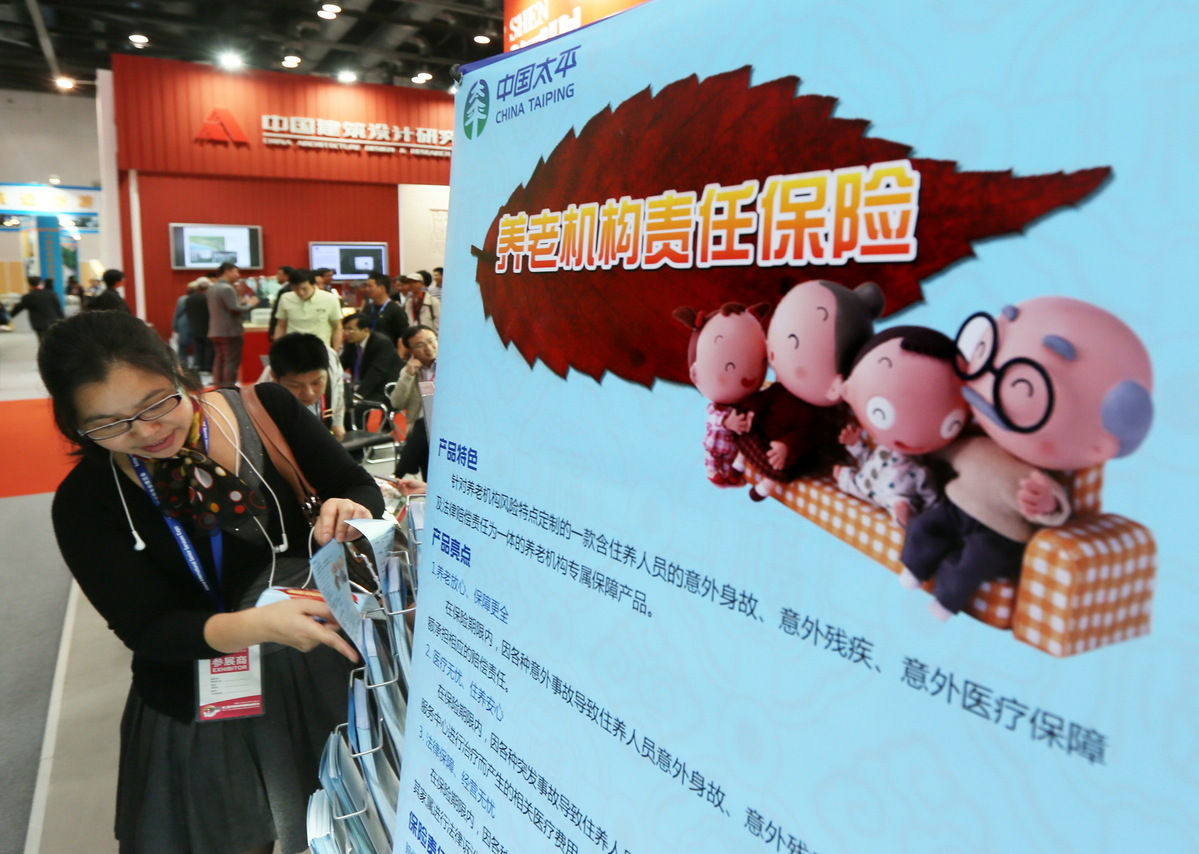Elderly care market gets fillip from pension products
By CHEN MEILING | China Daily | Updated: 2021-06-21 09:28

More insurers are developing products to target the growing demand of elderly care in China where an aging society requires them, experts said.
With 18.7 percent of its population aged 60 and above, China faces challenges in current social security, medical care and old-age care systems. But it also creates opportunities for the financial industry, they said.
The most obvious challenge ahead is a possible lack of pension. Currently, there are three major pillars of the pension insurance system in China: the State-run fundamental insurance, enterprises' annuity provided by employers and commercial pension insurance.
"With the proportion of people aged 65 and above growing continuously, aging population is expected to reach 30 percent of total population, and then will plateau for a long time. It will pose a great challenge to pensions," said Dong Keyong, a professor with the School of Social Sciences at Tsinghua University and secretary-general of the China Ageing Finance Forum (CAFF50), at a news conference in Beijing in May.
"The second and third pillars should further develop to accelerate accumulation of pension," he said, adding that the awareness of increasing wealth reserves for the future should be enhanced to encourage people to get well-prepared for old age, and thus spur demand for related financial services.
On May 15, the China Banking and Insurance Regulatory Commission said six life insurance companies were given the green light to develop exclusive commercial endowment insurance in Zhejiang province and Chongqing from June 1 as part of a one-year pilot project.
The regulator encouraged the six companies to provide exclusive commercial endowment insurance products, which can be purchased conveniently, offer flexible payment options and generate stable returns. Consumers can receive pension after they reach age 60, and the period for them to receive pension should be no shorter than 10 years, according to a notice issued by the regulator.
Enterprises and institutions are allowed to assist flexible employees or people working in emerging industries to pay for such insurance. The regulator also encourages the insurers to combine the exclusive commercial endowment insurance with elderly care and nursing services.
Zhu Junsheng, director of the China Insurance and Pension Research Center of the PBC School of Finance at Tsinghua University, told International Financial News that it will help accelerate the development of commercial endowment insurance and the construction of a multi-pillar pension insurance system, and also help meet differentiated demands for old-age security.
The six companies, including PICC Life Insurance Co Ltd and China Life Insurance Co Ltd, are all top insurers with complete branches and sales network. But it also asks for higher requirement for companies' capability in operation and investment, Zhu said.
Besides pension, the 264 million aging population may also need numerous services like daily nursing, healthcare and asset management.
"If the working period is for increasing wealth for old age, the retiring period is for consuming it," Dong said. Financial institutions, including banks, securities, insurers and trust companies, can develop more products to serve the consumption of pension, as the supply of such products is not sufficient in the market, he said.
Up to now, 10 insurers have invested in 47 elderly care communities, with over 84,000 beds in total. More than 234 billion yuan ($36.6 billion) were invested by insurance companies in the elderly care services sector, as well as the upstream and downstream medical and health service industries, through direct and indirect equity investment, said Cao Deyun, executive vice-president and secretary-general of the Insurance Asset Management Association of China.
New China Life Insurance Co Ltd released its new elderly care community on May 18 in Yanqing district of Beijing, with a total area of 280,000 square meters and about 2,000 apartments.
During the first phase of the project, the community will provide about 200 long-term apartments customized for the elderly and 100 short-term guest rooms, as well as services in entertainment, catering, sports, medical care, social exchange and wealth management, according to the insurer.
The community will open at the end of this year. Other elderly care communities of the insurer in Boao, Hainan province, and the Lianhuachi area of Beijing are already in operation.
Li Quan, president, CEO and executive director of New China Life Insurance, said the company has been developing products combining life insurance with elderly care and health services in major cities, taking advantage of the long duration and large size of insurance funds.
Ping An Insurance (Group) Company of China launched its high-end elderly care brand on May 9. Consumers of its insurance products can live in communities at core urban regions while enjoying medical care, rehabilitation and financial management services.
One of the first insurers to invest in the sector, Taikang Insurance Group has built elderly care communities in 22 cities, to be able to accommodate 55,000 people. It links its life insurance, health insurance, old age care and medical services. More insurers are following the beat.
Wang Xujin, director of the insurance research center at Beijing Technology and Business University, told Economic Daily that the fact that insurers actively join the elderly care sector shows they are optimistic about its market potential, and that insurance funds featuring long-term investment and the elderly care industry are a natural match.
The number of Chinese residents aged 65 and above reached 190 million, 13.5 percent of the country's total population, and may rise to 14 percent, which is considered the level for entering a "deep aging society "by international standards.
The lack of ample supply of elderly care services poses great potential for related industries, but there are still challenges-the pension level is low to constrain consumption of old people, said Dong. He suggested more support to be given to companies in the elderly care industry, to help them issue bonds, get floated and carry out mergers and acquisitions.
























